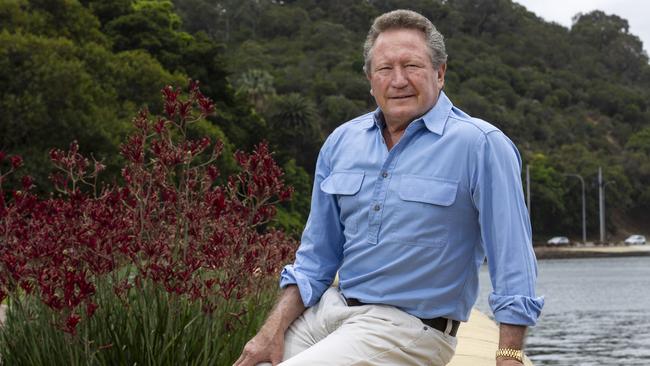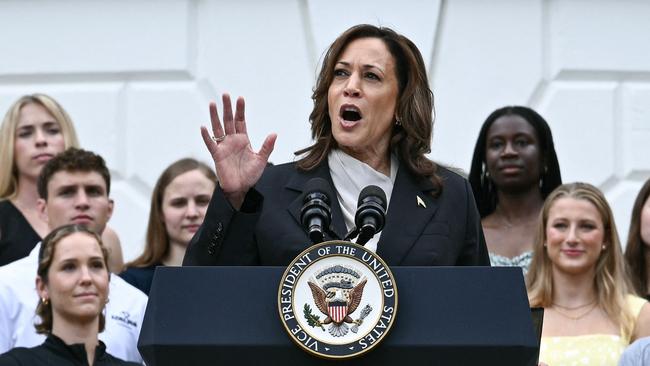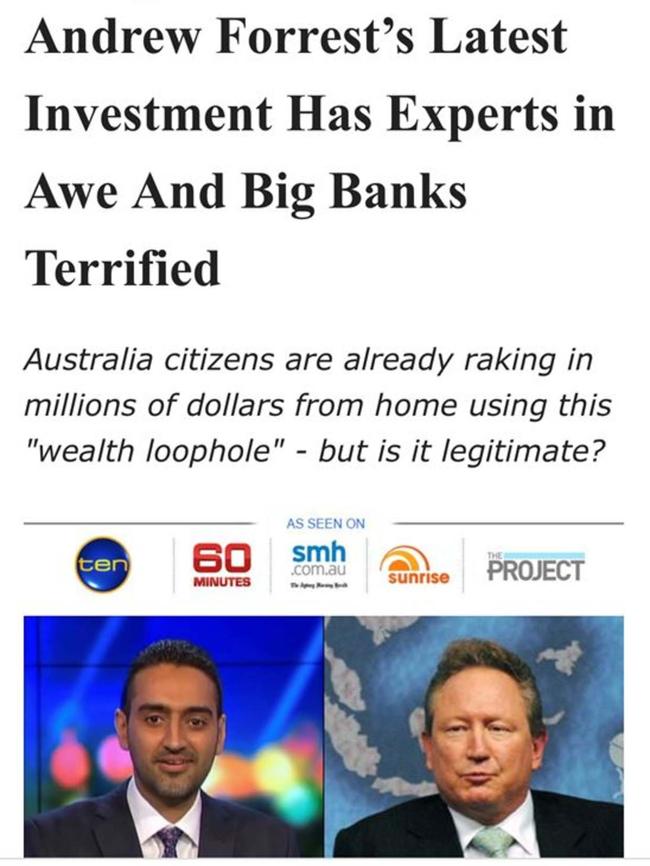Meta to appeal Andrew Forrest’s ‘strategic victory’ in crusade against scam advertising
The social media giant has hired a lawyer who is helping Kamala Harris battle Donald Trump for its appeal against a win for Andrew Forrest in his war on scam advertisements.

Meta is appealing Andrew Forrest’s “crucial strategic victory” against the social media behemoth, and has hired the same hotshot lawyer that Kamala Harris is using to help her prepare for a debate against Donald Trump.
Dr Forrest is suing Meta, claiming the company did nothing to stop thousands of scams being published on its platforms that fleeced scores of Australians of their life savings, alleging it was “knowingly advertising the content of criminals”.
He has vowed to spend “whatever it takes” to hold the company to account for the scams that run rife on its platform.
Dr Forrest launched legal action against Meta in California to test a 30-year-old law, known as Section 230, that gives US social media companies immunity from what users post on its platform, which Meta says extends to advertising.
In June, the California District Court ruled that “Dr Forrest has plausibly alleged that Meta played an active role in creating the ads at issue”, which include scams from criminal syndicates.
Meta is now seeking permission to appeal that decision, with a hearing scheduled at the Northern District, Federal Court, in San Jose, California in the early hours of Friday morning (Australian time).

Meta has changed its legal team since the June ruling, recruiting Karen Dunn – the same lawyer who is helping Democrat presidential candidate Kamala Harris prepare for her TV showdown with Donald Trump.
A Meta spokeswoman declined to comment on the case. But the fact that it has hired Ms Dunn shows how seriously it is taking Mr Forrest’s action.
According to court documents, Meta generated $US115bn ($170.74bn) in advertising revenue, globally, in 2021. Ade are its main source of revenue. Despite being one of the leaders in the artificial intelligence race – in which it has spent billions of dollars on high-end computer chips, top talent and gigawatts of electricity to power the technology, it has been giving away its AI tools for free across all its platforms, including Facebook, Instagram and WhatsApp.

Dr Forrest has argued that Meta has the “technically ability” to shut down the scam advertisements but has “failed to do so”. He said his likeness has been used in five new scam ads published on Meta’s platforms every single day.
“Where a complaint is made by a public figure that their identity was being used in fake celebrity endorsement ads and/or ads which link to deceptive landing pages, to place warnings on ads featuring that public figure to the effect that ads on the Facebook platform have falsely suggested that the public figure endorses a money making scheme or trading scheme when they did not and the user should exercise care,” the court documents state.
“Consumers who consequently signed up to the trading schemes lost money investing in them. Facebook estimated in August 2019 that around $500m had been lost by consumers worldwide by reason of such schemes. Some individual Australian Facebook users have lost hundreds of thousands of dollars.”
Dr Forrest first raised the fraudulent advertisements with Meta in 2014. Nothing happened. He personally wrote to Meta founder and chief executive Mark Zuckerberg, but didn’t hear back.
As a result of the lack of action, one Australian woman fell victim to a scam featuring Mr Forrest’s likeness and lost $670,000.
Another man clicked on a link in a fraudulent Facebook add and was swindled out of $77,254, and a 72-year-old Western Australian known as “FZ” lost $250,000 – which he has not been able to recover.
Dr Forrest has also written to Meta’s Australian boss, William Easton, who replied: “I appreciate this is very frustrating for you – it’s an extremely challenging, industry-wide problem which we are working to address.”






To join the conversation, please log in. Don't have an account? Register
Join the conversation, you are commenting as Logout